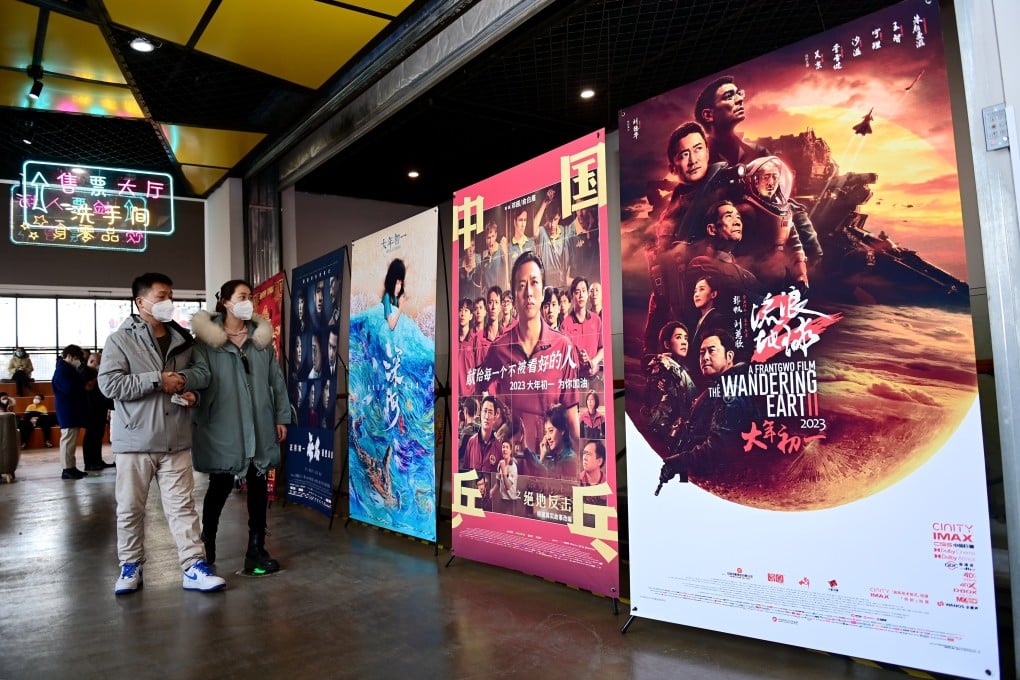China’s film industry shows signs of recovery, but ‘excessive optimism is unrealistic’
- China’s box office sales topped 10 billion yuan (US$1.4 billion) in January and sales over the Lunar New Year holiday were the second best in history
- But insiders warn that the film industry faces challenges, including shrinking investment, rigid censorship and scars from the Covid-19 pandemic

After stringent coronavirus curbs were dropped late last year, cinemas across China are once again full as people try to regain a sense of normality after three years of pandemic disruptions.
Cinema-goers are showing heightened enthusiasm for Chinese films in particular, with people reporting hot demand for tickets to sci-fi blockbuster The Wandering Earth 2 and a crowdfunding drive for the film’s merchandise surpassing an early 100,000 yuan target to reach more than 100 million yuan (US$14.8 million) in eight days.
Guo Yijia and her family, who live in Shandong province’s Rizhao city, watched two films during the Lunar New Year holiday in January.
But when she tried to buy tickets for The Wandering Earth 2, only a few seats were left in the front and back rows.
“I had never seen cinemas completely full,” she said. “Our family was forced to sit far away from each other because there were no available seats.”
For China’s film industry, the surge in ticket sales is a bright spot in an otherwise gloomy outlook.